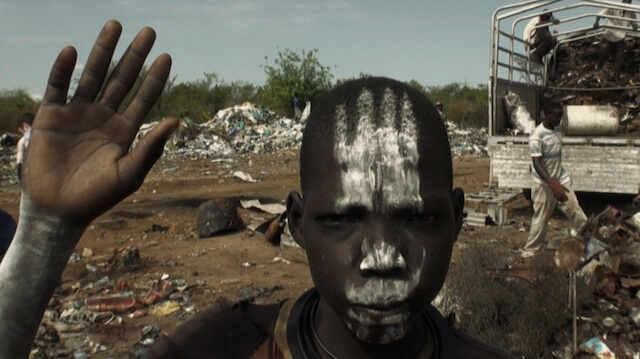‘We Come as Friends’ Hubert Sauper makes documentaries as outraged as they are darkly, darkly, despairingly comic. He’s a keen portraitist of bureaucratic ineptitude, but on a grand scale, namely as it applies to third world countries beset upon by first world superpowers. “Darwin’s Nightmare” pokes around the aftermath of overfishing in remote Tanzania, exposing how commerce for the rich unthinkingly destroys the poor. The new “We Come as Friends” looks at South Sudan at the dawn of its creation in 2011, and the early days of its plundering by outsiders. Suddenly American, Chinese and other forces are playing colonialists, and usually while not only ignoring those who live there but making their lives worse. Often pushing his digital camera uncomfortably close to subjects, Sauper observes towns where the water supply is tainted and resources that once flowed from the north have not, in the rush of annexation, been replaced. Meanwhile, soldiers, who tend to be conscripted locals given a super-fast crash course, ensure that everyone they meet is a Christian, not a Muslim. Missionaries from Texas flood into the region, pointing out that they “don’t understand property and ownership like we do,” then forcing locals to remove their jewelry and other trinkets of their culture. In this context even a visit from George Clooney seems misjudged — a mere celeb sighting from someone who will talk the talk but will never really get exposed to the horrors afoot. RELATED: “Best of Enemies” unpacks the epic Gore Vidal-William F. Buckley debates Sometimes Sudanese subjects bring up space exploration, an idea Sauper runs with. Americans, it’s pointed out, “really went to space,” meaning “the moon belongs to the white man.” Space travel is an extravagance the locals can’t even imagine, just as the Americans swarming into the new nation can’t get their heads around how everyone is 2,000 years (or, you know, thereabouts) behind the mechanized world. It’s also a metaphor Sauper likes to use for how outsiders view their new subjects: as faceless aliens, not unlike the beings visited on episodes of “Star Trek,” which at one point is watched by bored Chinese officials. The gap between the first and third worlds is so chasmic that it sometimes takes a documentarian to point out the tragic butterfly effect actions have in places far across the globe — or, in this case, sometimes face-to-face between a missionary and the impoverished figure they’re trying to “save.” “We Come as Friends” isn’t an activist film in the normal sense. Sauper or a Sudanese resident occasionally pop onto the soundtrack, but mostly to speak poetically. The opening image sets the tone: a close-up of ants scampering past a toy plane — a vision of imperialism as little more than child’s play, ignoring the feelings, or the safety, of those they affect. It becomes a collection of stolen sights, often dripping in gallows humor, that builds to a subjective portrayal of a true, dense rot. In that sense Sauper is like Les Blank, only for areas even more ignored than the South — someone who shoots only what strikes him, and coming back to the editing room with reams of thrilling, though in this case harrowing, footage.
Director: Hubert Sauper
Genre: Documentary
Rating: NR
4 (out of 5) Globes
‘We Come as Friends’ is a harrowing, darkly comic look at South Sudan

BBC Worldwide
Follow Matt Prigge on Twitter @mattprigge


















